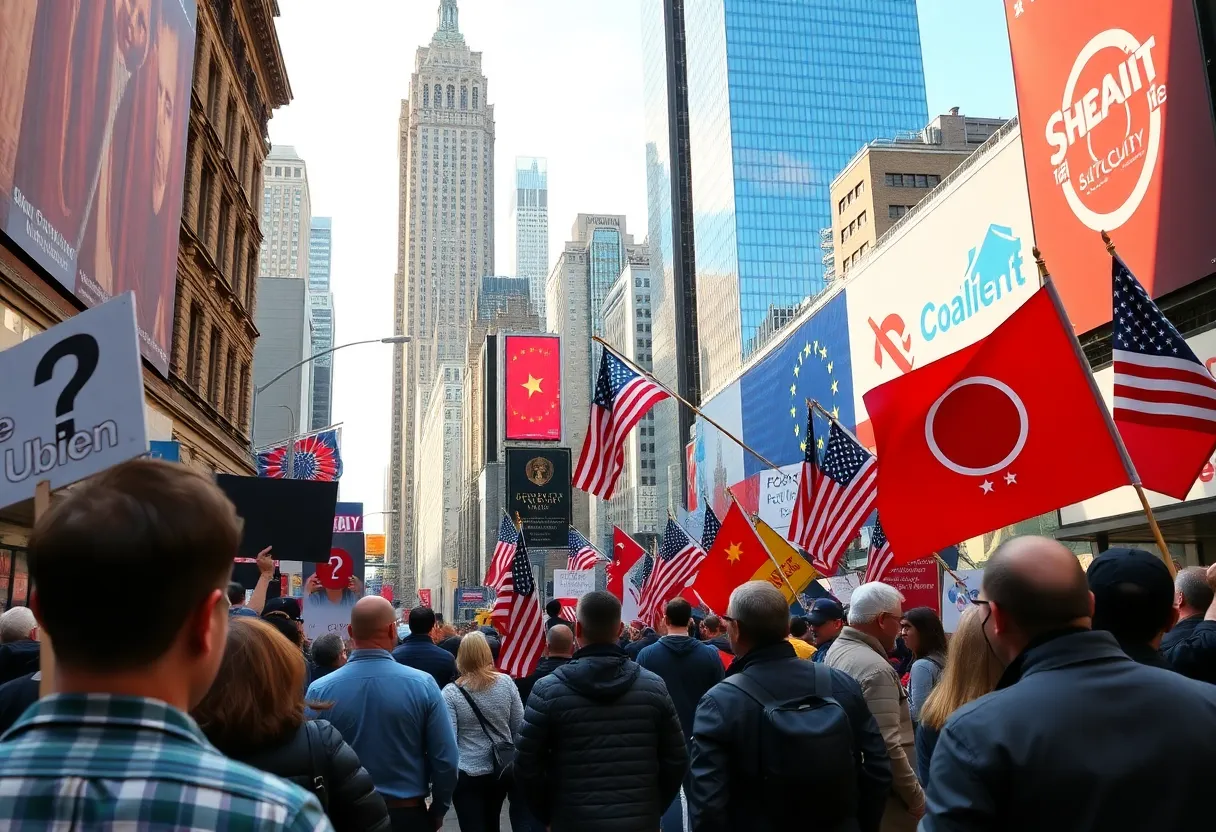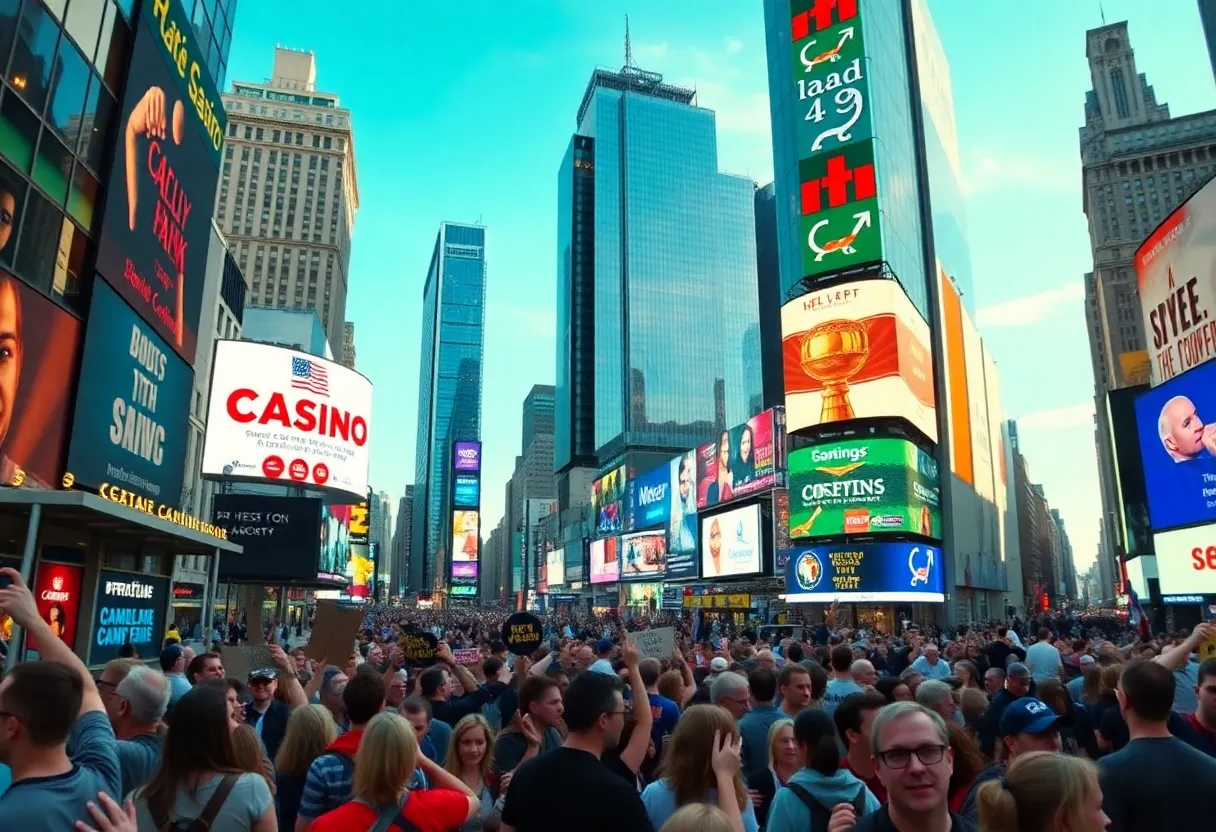News Summary
New York City is witnessing a political transformation with the rise of socialist candidate Zohran Mamdani, who won the Democratic primary. His proposals for higher taxes on businesses and policies aimed at wealth redistribution have sparked concerns among the business community. As Mayor Eric Adams struggles with low approval ratings and federal corruption allegations, the division within the Democratic Party could heavily impact the upcoming general election. Mamdani’s policies resonate with younger voters, while the business sector aligns with Adams to counteract the potential threat of Mamdani’s radical agenda.
New York City is grappling with significant political shifts following the recent primary victory of socialist candidate Zohran Mamdani. Mamdani’s win in the Democratic primary has ignited concerns among business leaders about the potential for leftward policy changes in the city.
Mamdani’s platform includes proposals for higher taxes on businesses and initiatives focused on wealth redistribution. His agenda, including plans for rent freezes and free public transport, aims to enhance affordability for younger residents. However, his rise has sparked fears among affluent New Yorkers and business circles, who perceive his policies as radical.
The victory comes at a turbulent time for Mayor Eric Adams, who is facing scrutiny due to ongoing federal corruption allegations. Adams, who has experienced a significant drop in public approval ratings to around 20%, is now making concerted efforts to solidify business support in the face of Mamdani’s growing influence.
The political landscape in New York City reflects deep divisions within the Democratic Party. While some party members rally behind Mamdani, others remain loyal to Adams. This division could shape the outcome of the upcoming general election as various factions within the party vie for control and influence. Notably, Mamdani garnered support from a wide demographic, appealing to many economic groups except the very wealthy and the very poor.
The context of Mamdani’s triumph can be traced back to a historical backdrop of political mismanagement and corruption in New York City. The city’s struggles during the fiscal crisis of the 1970s are still relevant today, as they led to increased crime, unemployment, and a deteriorating public safety situation. Investor confidence was drastically affected during that crisis, pushing the city to the precipice of bankruptcy. Political leaders like Governor Hugh Carey and later figures such as Mario Cuomo played crucial roles in stabilizing the city afterward, steering it toward recovery.
Many current city residents recall the political resilience demonstrated by past leaders like Ed Koch and Rudy Giuliani, who helped restore public confidence after the crisis. Today, however, there is a perceived lack of effective civic leadership reminiscent of previous troubled times. This perception may have contributed to Mamdani’s appeal, as voters look for alternative approaches amidst dissatisfaction with the current administration.
Mamdani’s campaign strategies focus on addressing issues that resonate with younger voters, an approach that contrasts sharply with Adams’ administration. While Mayor Adams has relied on his popularity and established political connections, his recent legal challenges have shifted his campaign dynamic, forcing him to seek business backing as a response to Mamdani’s ascendance. The growing alignment between the business community and Adams underscores their shared concerns about the implications of a socialist platform on the city’s economic landscape.
The upcoming general election is shaping up to be highly competitive, with calls for alternative candidates resonating within both parties. The Republican side shows signs of a serious push to capitalize on the existing divisions within the Democratic Party, indicating that Mamdani’s victory in the primary may catalyze broader electoral challenges moving forward.
As the landscape continues to evolve, both Mamdani and Adams must navigate the complexities of public sentiment and party allegiance. With Mamdani’s policies set to attract significant attention, how these shifts influence the city’s future remains to be seen.
Deeper Dive: News & Info About This Topic
HERE Resources
Bill Ackman Supports Centrist Candidate in NYC Mayoral Race
Zohran Mamdani Wins Democratic Primary for NYC Mayor
Progressive Agenda Gains Momentum in NYC Mayoral Race
Zohran Mamdani Defeats Cuomo in NYC Mayoral Primary
New York City Candidates Prepare for the November Election
Trump Calls NYC Mayoral Candidate Zohran Mamdani a Communist
Zohran Mamdani Emerges as Leading Candidate in NYC Mayoral Election
Political Unrest in NYC as Mamdani Leads Mayoral Race
Zohran Mamdani Wins NYC Democratic Mayoral Primary
Concerns Arise Over Progressive Candidate’s Mayoral Impact
Additional Resources
- The New York Times: Linda Sun Fraud Charges
- Reuters: NYC Mayor Corruption Case Update
- Semafor: Eric Adams’ Business Support
- USA Today: Mamdani and Adams Election Dynamics
- The Nation: NYC Political Corruption Explained
- Wikipedia: New York City








